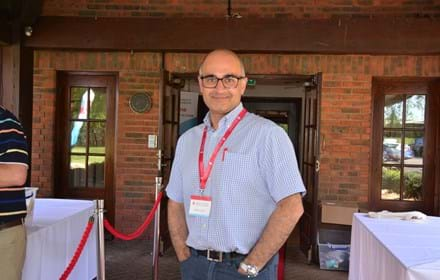
Continuous ketone monitoring "the next step" for type 1 diabetes
DRWF Research Advisory Board member Professor Ketan Dhatariya makes prediction for future of diabetes care at Advanced Technologies and Treatments for Diabetes (ATTD) conference.
The benefits of continuous ketone monitoring have been described as playing a key role in the future of type 1 diabetes management at a recent conference presentation.
Professor Ketan Dhatariya, Consultant in Diabetes, Endocrinology and General Medicine at the Norfolk and Norwich University Hospitals NHS Foundation Trust and member of the DRWF Research Advisory Board, discussed the latest technology in a presentation at the 16th International Conference on Advanced Technologies and Treatments for Diabetes (ATTD) held from 22nd-25th February in Berlin, Germany and as a virtual event online.

Professor Dhatariya talked about the clinical benefits of a first-of-its-kind dual-analyte glucose and ketone monitor system, helping to prevent diabetic ketoacidosis (DKA) as part of a presentation by a panel of international experts on the latest developments in sensor-based technology, entitled ‘Rethinking treatment limits with sensor-based technology’.
Professor Dhatariya said: “Ketone monitoring prevents hospital admissions.
“Earlier research shows that continuous glucose monitoring (CGM) use reduces hospital admissions for hypoglycaemia and DKA.”
DKA is a serious problem that can happen in people living with diabetes if their body starts to run out of insulin. Ketones are then released into the body as fat is broken down.
Ketones are a harmful substance that can build up in the body during an incident of DKA and can be life-threatening if not found and treated quickly.
Read NHS guidance on DKA here
Find out more about DRWF-funded research here
I would like to make a regular donation of
I would like to make a single donation of
There are lots of ways to raise money to support
people living with all forms of diabetes.
Bake, Swim, Cycle, Fly ... Do It For DRWF!
Fundraise with us
Recent News


